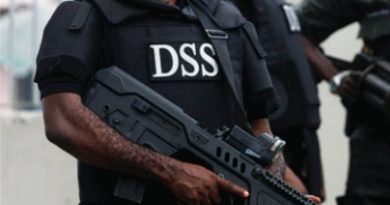Babangida regrets, accepts responsibility for annulment of June 12 election; “I am gratified that the Buhari administration finally recognized MKO Abiola as a ‘former head of state” _ IBB
After decades-long silence on the events leading up to the annulment of the June 12, 1993 presidential election, Nigeria’s self-styled military president, Gen. Ibrahim Babangida, for the first time on Thursday expressed deep regret over the annulment of the widely adjudged freest, fairest, and most credible poll in the history of the country.
Babangida, who spoke in Abuja at the unveiling of his autobiography, titled, “A Journey in Service,” and launch of his presidential library, admitted that the June 12 presidential election was the most credible, freest, and fairest in Nigeria’s history. He said it was unfortunate that the administration that midwifed a near perfect electoral system could not complete the process.
Expectedly, the atmosphere at the Congress Hall of Transcorp Hilton Hotel, where the event took place, was alive with an air of anticipation as dignitaries from across Nigeria and beyond gathered for the official unveiling of the long-awaited book published by Bookcraft Ltd.
High-profile attendees from all walks of life reminiscence critical moments in Nigeria’s history forecasting insights into Babangida’s memoir in the life and times of one of Nigeria’s most influential figures whose actions and inactions had resonated beyond three decades, reshaping Nigeria’s political, economic, and, even, international standing.
Recalling the June 12, 1993 general election, Nigerians set aside ethnic and religious divisions and elected Chief Moshood Kashimawo Olawale Abiola, popularly known as MKO Abiola, as their president. Hope filled the air, the dawn of a new democratic era was palpable, and the people believed that their voices had finally been heard.
But the termination of the election was a convulsion that sent shockwaves through the nation’s political and social landscape. It was a moment that altered the course of Nigeria’s democracy, plunging the country into uncertainty, unrest, and a prolonged struggle for civilian rule.
What followed the annulment was shattered hope, replaced by outrage, confusion, and a sense of betrayal resulting in protest across the country.
Civil society groups, pro-democracy activists, and every day Nigerian demanded the restoration of Abiola’s mandate and in the weeks and months that followed, Nigeria shook on the edge of chaos. The press came under siege, opposition voices were silenced, and the military tightened its grip, leading to a dark era of political repression.
The cancellation also set off a chain reaction including Babangida’s hurried exit from power leaving a leadership vacuum, which ushered in Gen. Sani Abacha, whose reign was marked by brutal crackdowns and widespread human rights abuses culminating in the arrest of Chief MKO Abiola after declaring himself the rightful president, and later died in detention under suspicious circumstances. His wife, Kudirat was brutally shot.
Babangida said, “Undoubtedly credible, free and fair elections were held on June 12, 1993. However, the tragic irony of history remains that the administration that devised a near perfect electoral system and conducted those near perfect elections could not complete the process.
“That accident of history is most regrettable; the nation is entitled to expect my impression of regret.
“As the leader of the military administration, I accept full responsibility for all decisions taken under my watch. And June 12 happened under my watch.
“Mistakes and oversights happened in quick succession. And I say in my book, in all matters, we acted in the supreme national interest so that Nigeria could survive.
“Our nation’s march to democracy was interrupted, a fact that I deeply regret, but Nigeria survived and democracy is still alive, a testament to resilience and commitment to progress.
“This book is part of my personal story of what was national history. I did not travel alone. I undertake the challenging walk of leadership in the company of many patriots.”
He said his eight-year administration confronted monumental challenges, and admitted that the reforms introduced by his administration also caused discomfort to Nigerians.
According to him, “I have had to contend with these questions all the time. When will you tell your side of the story? Understandably, our period of service is somehow evoked and rightly so, many questions and stories among our public.
“This book, which chronicles my experiences, decisions and challenges during our national service, tries to answer some of these questions from my modest perspective.
In his revealing account, Babangida said forces led by his Chief of Defence Staff, General Sani Abacha, annulled the June 12 election without his authority.
On June 23, Babangida said he left Abuja for Katsina to commiserate with the Yar’Adua family over the death of their patriarch, Musa Yar’Adua, former Minister of Lagos Affairs.
“The funeral had taken place, and as I got ready to leave, a report filtered to me that the June 12 elections had been annulled.
“Even more bizarre was the extent of the annulment because it terminated all court proceedings regarding the June 12 elections, repealed all the decrees governing the transition and even suspended NEC!
“Equally weird was the shabby way the statement was couched and made.
“Admiral (Augustus) Aikhomu’s press secretary, Nduka Irabor, had read out a terse, poorly worded statement from a scrap of paper, which bore neither the presidential seal nor the official letterhead of the government, annulling the June 12 presidential elections. I was alarmed and horrified.
“Yes, during the stalemate that followed the termination of the results announcement, the possibility of annulment that could lead to fresh elections was loosely broached in passing. But annulment was only a component of a series of other options. But to suddenly have an announcement made without my authority was, to put it mildly, alarming.
“I remember saying: ‘These nefarious ‘inside’ forces opposed to the elections have outflanked me!’ I would later find out that the ‘forces’ led by General Sani Abacha annulled the elections. There and then, I knew I was caught between ‘a devil and the deep blue sea’!! From then on, the June 12 elections took on a painful twist for which, as I will show later, I regrettably take responsibility.”
In the wake of the crisis, Babangida stepped down as president in August 1993 and installed an interim government, led by Ernest Shonekan, which Abacha would remove from power in November 1993.
Abacha later clamped Abiola into detention for declaring himself president.
Babangida, who did a national broadcast on June 24, 1993 to officially announce the annulment of the election, in his memoir, said Abacha had become a major force in a “factionalised” military and it was difficult to remove him when he stepped down from power.
The journey to the June 12 annulment began two days to D-Day, when a judge granted an injunction stopping the electoral commission from going ahead with the election. A group known as Association to Better Nigeria (ABN), led by Senator Arthur Nzeribe, had filed the lawsuit.
He stated in the memoir, “From out of nowhere, on June 10, two days before the presidential election, the same shadowy group, ABN, which had been campaigning for an extension of military rule, approached the Abuja High Court of Justice Bassey Ikpeme for an injunction to stop NEC (National Electoral Commission) from conducting the elections.
“Unknown to me at the time, Justice Ikpeme, who was relatively young at the Bench, had worked in the chambers of the Attorney-General and Minister of Justice, Clement Akpamgbo. Strangely, Justice Ikpeme, in the dead of night, in clear violation of Decree 13, which barred any court from interfering with NEC’s conduct or scheduling of the elections, granted the ABN an injunction stopping NEC from conducting the June 12 elections. There was confusion everywhere.”
Babangida said he quickly convened an emergency meeting of the National Defence and Security Council (NDSC), the country’s highest governing body, to discuss the way forward.
His words, “On Friday, June 11, as the NDSC meeting was going on, I learned that a Lagos High Court had ruled that NEC should go ahead with the elections. The NDSC meeting on Friday, June 11, only hours before the scheduled elections, was one of the stormiest meetings I ever conducted as President.
“Strangely, the Attorney General and Justice Minister, Akpamgbo, who was the nation’s chief law officer and who ought to know that the Justice Ikpeme court order violated an extant law (and was tacitly supported, it turned out, by some of my topmost military officers), advised that the elections be postponed in compliance with the Abuja court order. Professor (Humphrey) Nwosu (NEC chairman) insisted, to the dismay of my top military colleagues, that he had enough powers under the law to proceed with the elections.
“The arguments went on for hours in a tense atmosphere, peopled by some who wanted the elections postponed, among them the Chief of Defence Staff, General Sani Abacha, Lt-General Joshua Dogonyaro, and a few Service Chiefs.
“But I had my views bottled inside me! Even before Professor Nwosu presented his compelling argument, I decided that the elections should proceed, backed firmly by the Chief of Army Staff, Lt-General Salihu Ibrahim.”
Babangida said he looked across the room where the meeting was taking place and said to Nwosu, “Go ahead with the elections. Go to your office, hold a world press conference and tell everyone the elections will be held tomorrow as planned.”
The former military president said on June 16, Nwosu suddenly stopped the announcement of the election results even though the voting was peaceful and orderly.
Babangida wrote, “And then, on June 16, without my knowledge or prior approval, NEC Chairman, Professor Nwosu, announced the suspension of the June 12 election results ‘until further notice’.
“I knew instantly that certain fifth columnists were at work and that there was a need for extra care! And even after that suspension of the announcements of results, ABN obtained another ‘strange’ court order from Justice Saleh’s court in Abuja, stopping the release of the results of the elections.”
He wrote in the book, “Although I am on record to have stated after the elections that Abiola may not have won the elections, upon deeper reflection and a closer examination of all the available facts, particularly the detailed election results, which are published as an appendix to this volume, there was no doubt that MKO Abiola won the June 12 elections.
“Upon closer examination of the original collated figures from the 110,000 polling booths nationwide, it was clear that he satisfied the two main constitutional requirements for winning the presidential elections, mainly majority votes and geographical spread, having obtained 8,128,720 votes against Tofa’s 5,848,247 votes and securing the mandatory one-third of the votes cast in 28 states of the federation, including Abuja.
“Unfortunately, the forces gathered against him after the June 12 elections were so formidable that I was convinced that if he became president, he would be quickly eliminated by the same very forces who pretended to be his friends.
“While I accept that the unfortunate denial of his mandate amounted to a subversion of the will of the Nigerian people, I was petrified that if Abiola got killed, it could lead to a civil war.
“Having participated in one civil war, with all its horrors, pains and devastation, I wasn’t prepared to see another.
“I am gratified that the Buhari administration finally recognised MKO Abiola as a ‘former head of state’.”
Distinguished guests, including President Bola Tinubu, former Presidents Olusegun Obasanjo who was the chairman of the occasion and Goodluck Jonathan, and ex-Heads of State Gen. Yakubu Gowon and Abdulsalami Abubakar, gracing the occasion.
The historic event was further enriched by the attendance of international figures, such as former Ghanaian President Nana Akufo-Addo, who delivered the keynote address.




